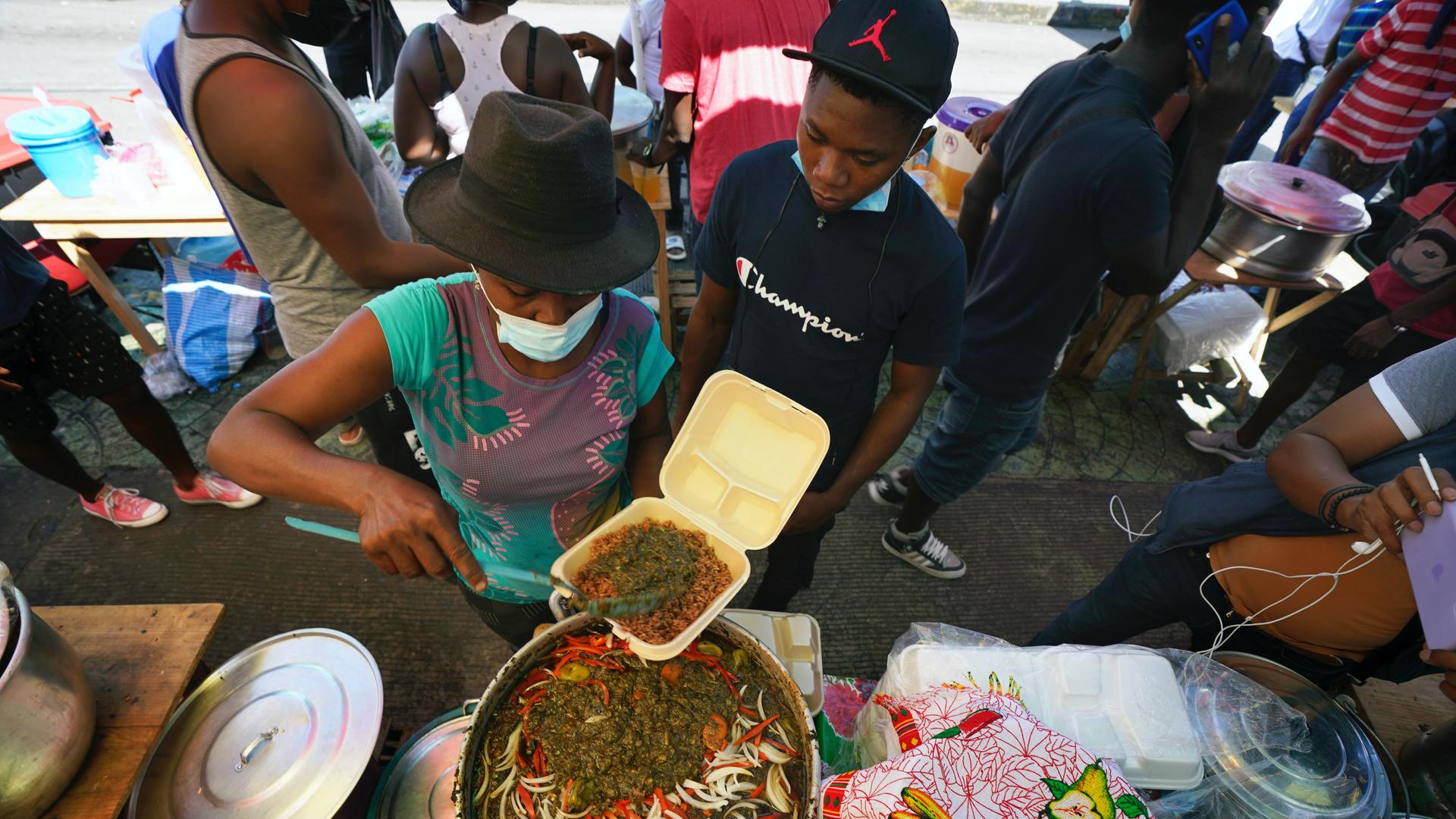Yuliana, a Haitian migrant in Tapachula, Mexico’s southernmost city, pushes a dolly with a bucket of water bottles, Coca-Colas, energy drinks and ice for sale.
On a good day, she’ll make $4. Other days, she doesn’t make any money at all.
Yuliana didn’t want to give her last name because she said she doesn’t want to prejudice her refugee application in Mexico.
Yuliana said she’s migrating because she couldn’t get documentation in Chile to bring her four children from Haiti. She was hoping she could do that in the US. To get to Tapachula, Yuliana walked for 10 days through the treacherous Darién Gap.
Yuliana’s kids are 13, 9, 8 and 7, and her desire to be with them again is what keeps her coming out on the street and selling water every day.
It’s a similar story for many other Haitians in Tapachula. The city has been a crossroads for many Indigenous groups and people from all over the world. This year, thousands of Haitians came here. And then suddenly, earlier this month, many of them disappeared.
Cruz Marquez, a local supervisor for Mexico’s federal refugee agency, said that most people were headed toward Del Rio, Texas.
The US has expelled about 4,000 people from Texas to Haiti, Alejandro Mayorkas told CNN’s State of the Union. In the meantime, Mexico is also deporting Haitians. The country flew 70 people to Port-au-Prince on Wednesday.
Even so, thousands of Haitians remain in southern Mexico.
Click on the audio player above to hear more of this story.
